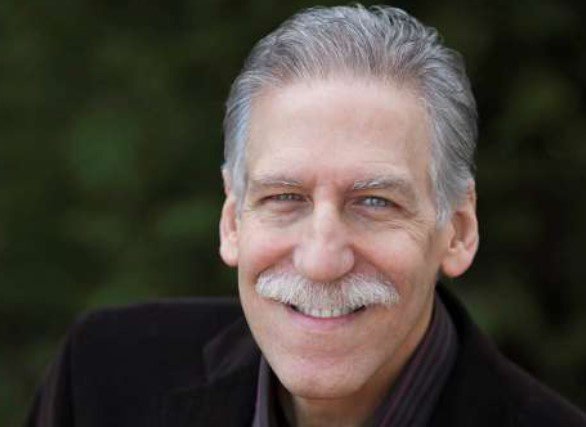
Geri Ungurean is an Evangelical Christian known for her fanatical support of Donald Trump, the nation of Israel, and Israel’s genocidal war against the Palestinian people. Devout in her faith, I would never question whether she is a Christian. When it comes to professed beliefs, I generally take people at face value. If a person says they are a Christian, I believe them, and I expect the same treatment from Christians. Each of us has the right to control our own storyline. Who better to tell their story than the person who lived it?
Unfortunately, many Evangelicals refuse to let atheists and agnostics control how they self-identify. Supposedly, the Bible gives them the right to tell unbelievers what they “really’ believe or whether atheists are atheists at all.
Ungurean had this to say about atheists:
Find a person who not only claims to be an Atheist, but obsesses on pushing their atheistic views on others so as to recruit them; and I guarantee that if truth be told, and this person opened up about their life, you would find an ANGRY person. You would find a person who blames the God whom they say does not exist, for something that happened in their life.
….
There is a saying that goes like this: “There are no atheists in foxholes.” I believe this is true. A lifelong “atheist” will cry out “God help me” when faced with death.
….
Do you have a person in your life who claims to be an atheist? I have many. But I came to the point when I realized that God must be the One who gets through to the “haters.” The more you push against them, the nastier they become. The more Scripture you give to them, the more they laugh.
….
Love them and pray for them. There is a man on Twitter whose sole purpose for being on there is to tout his “atheism” in hopes of drawing others to his sad conclusions.
I watched this man for many days. I wanted to say something to him, but it was as if God was holding me back. I felt in my spirit to show Christian love to him and most importantly to Pray for him.
We are now friends on Twitter. We can write back and forth in private messages. This was during the medical scare I had recently. By the way – all tests came out benign (Thank You Jesus).
The Twitter atheist and I would talk to one another about things which were going on in our lives. He is very polite and compassionate. He knows that I am an Evangelical Christian who will not budge from my deep faith. I know that he claims to be an ardent atheist. So, with that out of the way, we speak as friends.
He has opened up to me that he went to seminary and that he was saved during college. He knows that my boys (grown) refer to themselves as atheists now. I feel that the Holy Spirit has led me in this friendship. I pray for this man every day – expecting God’s answer.
I am hoping and praying that the Lord will bring him back. I pray for God’s will to be done in “David’s” life.
But I don’t for one minute believe that he is an atheist. I believe that something happened in his life which made him bitter towards God.
Brethren, I believe that many of us have these people in our lives. Sometimes, they are in our immediate families. Sometimes they are friends or co-workers. Show love to these people and do not argue with them. Most importantly, PRAY for them every single day!
The arm of God is not too short to reach anyone, and that includes those who are angry with Him!
Where oh where do I begin?
Ungurean denies the existence of atheists; that when push comes to shove, atheists will cry out to Jesus in their time of need. She has no evidence for this claim other than her own opinion. I’ve been an atheist for seventeen years. I know more than a few atheists who have died, including readers of this blog. Not one of them abandoned atheism. Not one of them embraced Christianity on their deathbed. Is it possible for an atheist to get “saved” at the end of life? Sure, it happens, especially among those deeply conditioned and indoctrinated in Fundamentalist Christianity. Fear of death, Hell, and judgment return, leading the dying person to return to the safety of their religious past. Of course, more than a few Christians have died wondering where the Heaven God is in their time of need.
So, to Ungurean and other atheist deniers, we exist, and we ain’t going away. I am confident that when it comes time for me to die, I will expire knowing that I was right about the existence of God and my eternal future. And if I do, per chance, struggle with these issues on my deathbed, it will be because of how Fundamentalist Christianity fucked up my mind for fifty years.
Ungurean thinks people become atheists because of anger, bitterness, or some sort of negative experience. I can’t speak for all atheists. Every atheist has a unique story to tell. For me personally, I came to a place where the central claims of Christianity no longer made any sense to me; that the claims critical to faith in Jesus are false. Have I, at times, been angry or bitter? Sure, but these feelings came after I deconverted. I was angry and bitter for a time because of how Evangelical Christians treated me post-Jesus. I’ve never been more abused and demeaned than by Evangelicals who savaged and belittled me for walking away from Christianity.
I find it hilarious that Ungurean chastises atheists for promoting atheism, yet she does the same for Christianity virtually every day — as do countless other Christians. Unlike Evangelicals, however, outspoken atheists rarely try to evangelize people. Sure, it happens, but, for the most part, atheists want to be left alone and only share their beliefs when asked or accosted by a zealot.
Ungurean asks her followers to pray for atheists and not try to debate with them. Why is that, I wonder? Is it the fact that most Evangelicals — including Ungurean — are ill-equipped to have a thoughtful, intelligent discussion with an atheist? Is it the fact that outside of giving a salvation testimony, most Evangelicals can’t defend the core doctrines of Christianity, including the existence of God? They wrongly think that quoting Bible verses will defeat any atheist, when, in fact, the Bible is a book of claims, and not evidence.
Let me note, in closing, several of Ungurean’s grown children are atheists. Why has she been unable to convince them to get “saved” or does she think they are still saved, based on childhood religious experiences? Her children, like the rest of us, own their own stories. She has no more right to tell their stories than she does those of atheists and other unbelievers. All that should matter is truth, and to Geri Ungurean, I say, stop psychoanalyzing atheists and engage them in debate; honest, open debate. If you can’t do that, you are just chucking rocks at atheists instead of defending the faith.
Bruce Gerencser, 68, lives in rural Northwest Ohio with his wife of 47 years. He and his wife have six grown children and sixteen grandchildren. Bruce pastored Evangelical churches for twenty-five years in Ohio, Texas, and Michigan. Bruce left the ministry in 2005, and in 2008 he left Christianity. Bruce is now a humanist and an atheist.
Your comments are welcome and appreciated. All first-time comments are moderated. Please read the commenting rules before commenting.
You can email Bruce via the Contact Form.









